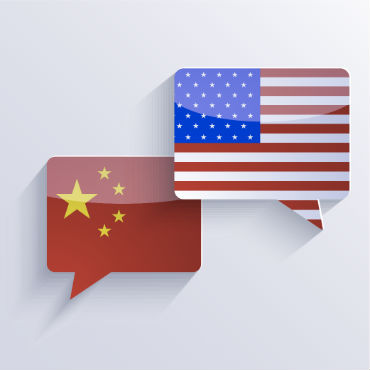The latest in Chinese IT
Steve Kelman reports that Chinese firms are advancing beyond knockoffs to produce real innovations.

When most people think of Chinese IT applications, they think – as is the case for Chinese products in many areas – of knockoffs. Baidu is a Chinese knockoff of Google. Renren is a knockoff of Facebook, and Taobao a knockoff of Ebay. For years, about the closest Chinese apps have come to something vaguely original has been with games, which is where many IT startups in China focus.
This has begun to change, however, in terms of both actual technology and the role homegrown tech is playing in society and everyday life in China.
The way was paved by weibo -- the term means "micro-blog" in Chinese -- which offered by one of the IT Chinese app conglomerates, Sina.com. (In the great tradition of finding creative ways to move between English and Chinese brand names -- immortalized by the Chinese word for "BMW," the similar-sounding moniker bao ma, which means "treasure horse" – the Chinese name for Sina is xin lan, meaning "great wave," but pronounced in Chinese very close to "Sina.")
In terms of its technology, weibo is basically a pure knockoff of Twitter, a site that is blocked in China. Even the look and feel are the same. But in terms of its social role, weibo created a near-revolution in Chinese society.
A precondition was that 140 characters in Chinese allows one to say a lot more than 140 letters in English. Chinese words generally consist of 1-3 characters, so posts could have some significant content.
The weibo service, along with many specific posts on it, went viral in China and became, about three years ago, an outlet for popular commentary, much of it quite outspoken, on problems in Chinese government and society, and for publishing pictures showing corrupt officials wearing $10,000 watches or cavorting with prostitutes. The government has employed an army of people to monitor weibo posts and remove ones that go over the line (as well as enlisting Sina in censorship efforts). But this is difficult to do effectively because censors rely heavily on searching for sensitive words, and Chinese find ways around these with circumlocutions. China post-weibo will never be the same.
More recently, Chinese IT has provided technological as well as social innovation. The best example is the messaging app WeChat (called in Chinese, again hononymically, wei xin or "micro message"), a product of the Internet giant Tencent that may sometime soon be headed for an IPO. Although loosely modeled on WhatsApp, the messaging app bought recently by Facebook, WeChat has an audio feature that WhatsApp doesn't, allowing people to send voice messages as part of a conversation. It is sort of like an old walkie-talky, but one that can instantly go from the United States to China. And it is less demanding than getting on a Skype call, and thus more appealing to multitaskers, as an alternative to text messaging. (WeChat also supports text messages.)
WeChat also allows you to use the barcode embedded into your account to order taxis, pay bills and purchase other services; the barcode feature also allows people who meet each other instantly to sign up as WeChat friends by having their bar codes sort of "kiss" each other. While weibo is a broadcasting service, WeChat is a friend-to-friend service.
In the last year, the government has tried to clamp down on weibo. Some bloggers with huge followers were arrested, and in a few cases made humiliating self-criticisms on TV that reminded one of the Stalinist era in Russia. A law was passed making it illegal to repost "rumors" that later were "determined" to be untrue. Both because of this and because of the growing popularity of WeChat, weibo use in the last year has plummeted; at a recent dinner with four students, I learned all four had either stopped looking at weibo altogether or dramatically reduced their usage. (Weibo has announced an IPO in the United States, so investors beware.)
The growth of WeChat may be seen as a victory for the government, since the service makes it harder for messages to go viral, but some people are suggesting that the greater ability to communicate privately might facilitate political organization among friends.
The last innovation is a financial services product introduced only last year, called in Chinese Yu'e bao ("surplus treasure," this one has no English homonym yet). Yu'e bao is a product of the biggest Internet company in China, Alibaba, which has recently announced a Facebook-magnitude IPO. This is an online money market fund that takes advantage of government-imposed caps on interest rates in banks, which are almost all state-owned, by offering higher-than-bank rates to small savers. In a few months, it has become wildly popular, draining funds from banks.
Essentially, the Yu'e bao business model is to arbitrage by loaning money to banks that are losing individual deposits to the online upstart, lowering bank profits by reducing the spread between capped individual savings account rates and market lending rates. Given the possible fragility of the Chinese banking system, this could become a real problem for Chinese banks, but probably –- as with the old U.S. telephone battles that MCI's entrance into the market brought about decades ago -- the end result will be a policy change to remove deposit interest caps. Meanwhile, the service also functions as a debit card to pay for transactions in real time, and is being expanded into other apps.
In a recent trip to China, I saw government officials dressed in suits and white shirts, and IT techies dressed in blue jeans. Some things are the same in both countries.





